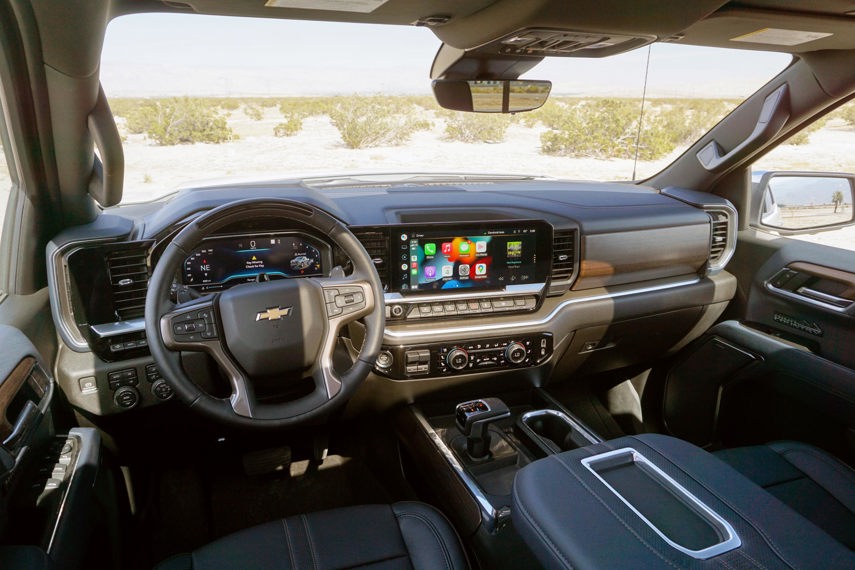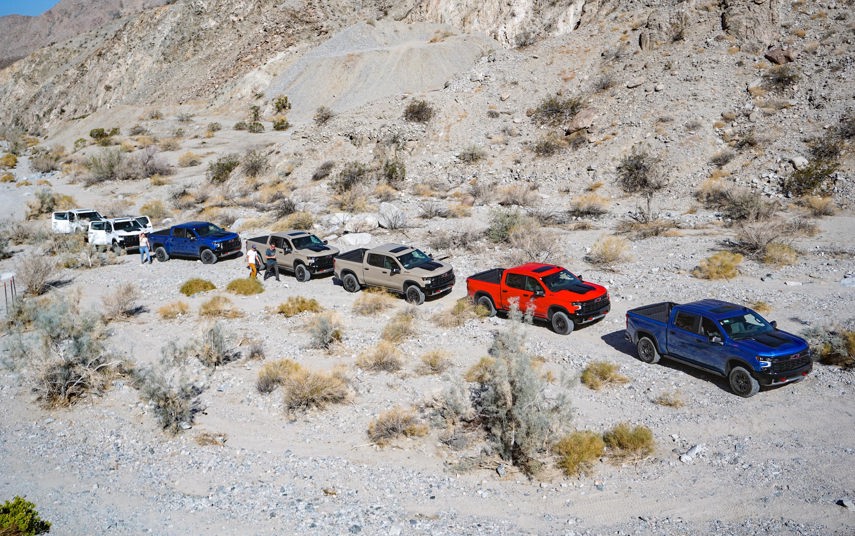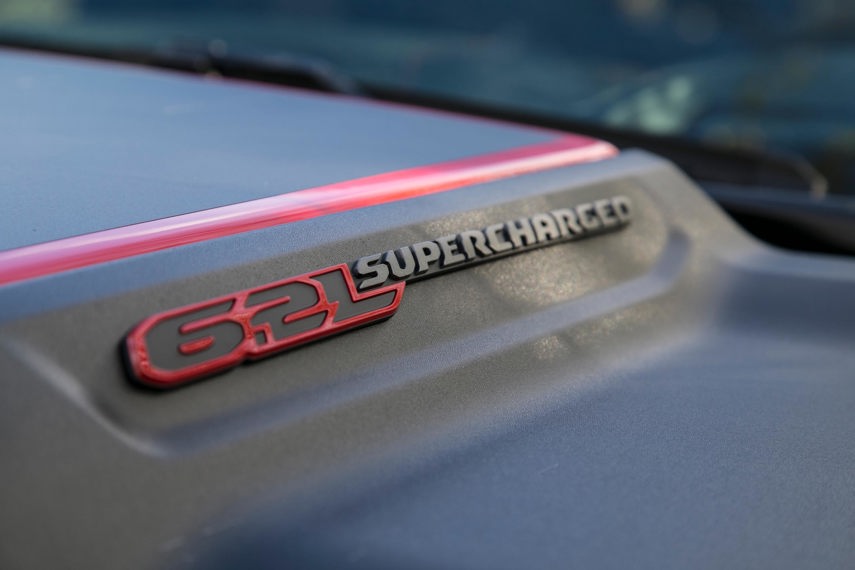Despite the rumours that circulated earlier this year, there are no plans – imminent or otherwise – to institute a “truck tax” in Canada.
That political hot potato isn’t totally without roots, however – or merit. It was one of 40 recommendations made by Canada’s Net-Zero Advisory Board (NZAB), an independent panel of experts whose mandate is to guide the federal government “on the most likely pathways for Canada to achieve net-zero emissions by 2050,” according to its website.
The federal government already dings the highest consuming cars and sport utility vehicles with an excise tax ranging from $1,000 to $4,000 as a way to penalize purchases of the worst polluters on the market. However, the current policy includes an exemption on trucks, which the NZAB suggests ending.
While the NZAB report cautions about the potential impacts the expanded excise tax – often referred to as the federal green levy – would have on vulnerable populations, including low-income households, it suggests the revenue generated “could increase available funding” for the federal tax rebate for the purchase or lease of zero-emissions vehicles.
Luxury Tax Will Hit Trucks, Too

With a so-called luxury tax taking effect Sept. 1, 2022, that will impact the purchase of six-figure passenger vehicles, shoppers will soon be paying a premium for the priciest models on the market – pickups included. And while it bears repeating that expanding the federal green levy to include trucks is entirely separate and not something that’s officially on the table, that it’s not “illustrates the purely political aspect of the problem,” according to Wilfrid Laurier University professor Byron Williston.
“If the goal is simply to reduce emissions in this sector, it is unreasonable and arbitrary to include many SUVs in the levy while excluding trucks that emit as much or more,” he said in an email. “For whatever reason this vehicle has become a potent cultural symbol – one that is easy for politicians of a certain stripe to exploit.”
Williston’s point is a valid one. After all, the threshold at which the levy is triggered – a combined consumption rating greater than 13.0 L/100 km – would apply to plenty of pickups. Yet since the federal green levy was introduced in 2007 by the government of then-Prime Minister Stephen Harper, trucks have been exempt from the penalty. According to a Globe and Mail article published in 2007, federal finance officials at the time said “it would be unfair to penalize pickups because many Canadians require them for work.”
For some, like the Canadian Taxpayers Federation (CTF) group that was once led by current Alberta Premier Jason Kenney, the mere suggestion of a truck tax is an affront to the “millions of Canadians” who depend on pickups “for their livelihoods.” That’s according to the organization’s director for Alberta and British Columbia, Kris Sims.
The fact that four of the five top-selling vehicles in this country are trucks suggests plenty of purchases are driven by desire rather than need, however. Even so, it could be possible to implement some sort of exemption for shoppers who genuinely need pickups – farmers, for instance, or tradespeople – although doing so would be far from foolproof.

“Eventually, all pickup trucks will have to be included (and I suspect that with the exemption in place the number of business-related claims will rise sharply, making this problem even more acute),” said Williston. “In other words, the exemption merely punts the issue down the road.”
The Laurier professor also noted that the purpose of the tax – to discourage Canadians from buying vehicles that produce excess emissions – runs parallel with the undeniable realities of climate change and the need to reduce emissions across all sectors, transport included.
According to data from Natural Resources Canada (NRCan) back in 2016, some 27 per cent of greenhouse gas (GHG) emissions in Canada comes via the transportation sector at large – about half of which is attributable to passenger vehicles.
“If we accept that we are in the midst of a climate crisis (and this cannot rationally be denied) then we must also accept that we need to make significant sacrifices in order to deal with it,” Williston said.
“In my view, we all need to become far more aware of the profound harms that climate change is producing, harms to future generations and to the most vulnerable members of the present generation. And we need to see the very real connection between our consumer choices and these harms. The point about sacrifice therefore applies to all of us, not just pickup drivers.”
Look to Europe
On that point, 21 of 27 European Union (EU) member states have instituted some form of emissions tax on passenger vehicles of all types, according to the European Automobile Manufacturers’ Association (ACEA). So, too, has the British government.
According to research published last year in the International Journal of Environmental Research and Public Health, the use of penalties and incentives has had a demonstrable impact on the new-vehicle market and the purchase decisions consumers make.
“Especially in the passenger vehicle segment,” wrote the Portugal-based researchers, “the adoption of a tax to the price of new cars acquisition, combined with incentive policies to scrap older and therefore more polluting ones, has proven to be effective in promoting the demand for vehicles with lower (carbon-dioxide) emissions.”
Federal Green Levy Reform

At home, Policy Options magazine, a publication from the Institute for Research on Public Policy, proposed back in 2017 reforming the current excise tax model “to be more environmentally effective, while still providing consumer choice.
“In order to make low-emissions vehicles more attractive to consumers,” the authors wrote, “the tax should be applied to all vehicles below a certain pollution rating threshold.”
The proposal would see passenger vehicles, including trucks, taxed using the same emissions rating scale used by Natural Resources Canada (NRCan). Vehicles with ratings in the top half of the scale wouldn’t be taxed, according to the proposal, while those with ratings between one and five – with one being the worst – would be penalized.
“To take into consideration affordability, we suggest a tax that is a percentage of the vehicle purchase price,” according to the Policy Options report. That’s in contrast to the current federal green levy that applies the same $1,000 to 4,000 tax to the worst emitters regardless of price tag.
The authors suggest a tax range of five to 10 per cent of the purchase price, depending on emissions scale rating. That would see, for instance, the supercharged Ram 1500 TRX pickup taxed at a rate of 10 per cent on its $100,000 base price, while the Ford F-150 Hybrid wouldn’t be taxed at all.
Final Thoughts
Regardless of the approach, Laurier University’s Williston noted that the solution to the emissions problem must be a multifaceted one in order for it to succeed.
“First you push undesirable products out of the market, then you encourage replacement products,” he said, referencing a combination of taxes on excess emitters and incentives for electric vehicles (EVs).
“Both provincial and federal governments should be investing much more in rebates for EVs as well as the development of EV infrastructure (and other measures) than they currently are,” Williston continued. “The ideal would be to make the switch as financially (and logistically) painless as possible for ordinary consumers.”

